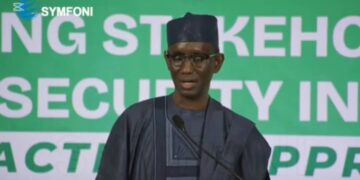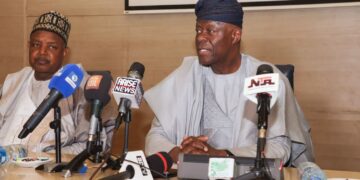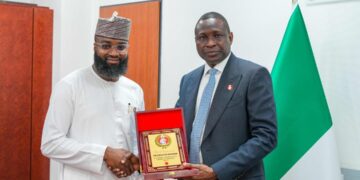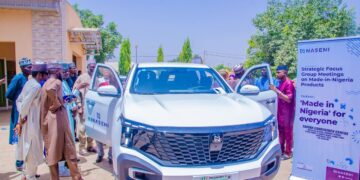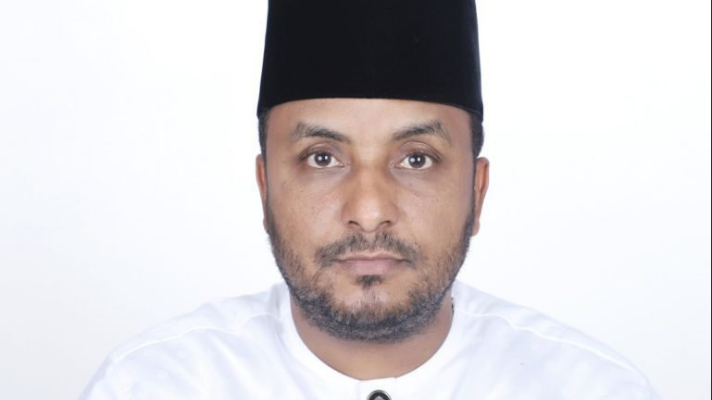By Alwan Hassan
The greatness of the Muhammadu Buhari presidency is hinged on the sustainable impact of many of its policies, programs, and projects — many of which will be highlighted herein. Since coming to power in 2015, President Buhari has spearheaded several key policy interventions in every major sector of the Nigerian economy. This is why, with all these achievements, he has clearly secured his place as Nigeria’s best President so far.
The achievements that will define the legacy of Buhari are also the inconvenient truths that will unsettle those who place themselves above Nigeria’s interest. And this is why this compilation of facts is not an attempt at image laundering, but a verifiable record on his significant accomplishments in infrastructure, agriculture, economy, social welfare, industrialization and a legion of other interventions that combine to justify Buhari’s record as Nigeria’s best President.
Unarguably, one of the biggest achievements of the Buhari administration has been his administration’s unrivalled investment in infrastructure — a feat that has gained his government a competitive edge when compared with the previous democratic regimes that it has succeeded.
An x-ray of the infrastructural development facilitated by the Buhari-led Federal Government between 2015 and 2019 reveals the following:
INFRASTRUCTURE
N2.7 trillion was spent on Infrastructure in 2016 and 2017 fiscal years, an unprecedented allocation in Nigeria’s recent history. Out of this figure, N1.219 trillion was released for capital expenditure in the 2016 budget, and N1.476 trillion so far in the 2017 budget — making for a total of N2.7 trillion (about US$9 billion) in two years. This investment has enabled the resumption of work on several stalled projects — road, rail and power projects — across the country.
ROADS
Through the N100 billion Sukuk Bond issued in 2017 by the Buhari Administration, 25 major road projects have been financed across the six geopolitical zones of Nigeria. It is also important to note that road projects are now going on across every state in the country. This is despite the fact that many of these projects had been abandoned by previous administrations because of the mounting debts owed by the Federal Government to contractors.
The Works Ministry, marshaled by Babatunde Fashola (SAN), since this administration came into office, has seen to the rehabilitation of the Lagos-Ibadan expressway; the Abuja-Kaduna-Kano expressway; and the Second Niger Bridge following the release of US$650 million from the Presidential Infrastructure Development Fund (PIDF) launched in 2018 by the Buhari government.
Additionally, under Executive Order 7 signed by President Buhari on January 1, 2019, to develop critical road infrastructure in the country, six companies will construct 19 federal roads that have been prioritized in 11 states across each of the six geo-political zones. Again, this project covers an impressive 794.4km.
The companies which include, Dangote Industries Limited; Lafarge Africa Plc; Unilever Nigeria Plc; Flour Mills of Nigeria Plc; Nigeria LNG Limited; and China Road and Bridge Corporation Nigeria Limited will invest in the following road projects:
The Construction of Ashaka-Bajoga Highway in Gombe State; the reconstruction of Dikwa-GambaruNgala Road in Borno State; the Reconstruction of Bama-Banki Road in Borno State; the rehabilitation of Sharada Road in Kano State; Rehabilitation of Benin City – Asaba Road in Edo State; and the rehabilitation of Nnamdi Azikiwe Expressway / Bypass, in Kaduna State.
Others are the reconstruction of Birnin Gwari Expressway – Road in Kaduna State; reconstruction of Birnin Gwari – Dansadau Road in Kaduna State; reconstruction of Makurdi-Yandev-Gboko Road in Benue State; reconstruction of Zone Roundabout-House of Assembly Road in Benue State; reconstruction of Obajana-Kabba Road in Kogi State; and the reconstruction of Ekuku-Idoma-Obehira Road in Kogi State.
Additionally, the companies will also construct the AdaviEba-Ikuehi-Obeiba-Obokore Road in Kogi State; rehabilitate the Lokoja-Ganaja Road in Kogi State; the Ofeme Community Road Network and Bridges in Abia State; the Obele-Ilaro-Papalanto-Shagamu Road in Ogun State; Bodo-Bonny Road & Bridges across Opobo Channel in Rivers State; and work on the reconstruction of Sokoto Road in Ogun State and the Apapa-Oshodi-Oworonshoki-Ojota Road in Lagos State.
RAIL
The Buhari Administration, through the Ministry of Transport headed by Rt. Hon Rotimi Amaechi has completed some rail projects and started others. This includes the Abuja-Kaduna line, which has been completed. Meanwhile, the tracks and the signalling have been completed on the Abuja-Itakpe-Ajaokuta-Warri rail, while work has started on the Lagos-Abeokuta-Ibadan rail.
Similarly, the upgrade of Nigeria’s 3,500km network narrow-gauge railway network has commenced, with the signing, in April 2018, of the interim phase of a concession agreement between the Government of Nigeria and an International Consortium led by General Electric (GE).
The target of this Interim Phase is that within the next 12 months, passengers will experience reduced travel time by rail between Lagos to Kano, and, for the first time in over a decade, contracted and scheduled freight rail services will be available.
Abuja’s Light Rail system is ongoing and will go into operation in 2020. The first line to be launched will connect the city center with the Airport, with a link to the Abuja-Kaduna Railway Line.
The Buhari government, according to the Transport Minister, Amaechi would create about 5,000 jobs upon completion of the railway Wagon Assembly Plant being built at Kajola in Ogun State. Nigeria would also, in the long run, be able to manufacture rolling stock for the country’s use as well as for other African countries.
POWER
According to the Buhari Media Organisation (BMO), one of the President’s 100 days in office milestones for his second and final term was a remarkable deal with Siemens to rejig Nigeria’s power supply, as well as the inauguration of Africa’s largest hybrid solar power plant. For the avoidance of doubt, the President, within the first few days of his second term, concluded plans for improved electricity supply by signing a six-year power deal with German energy giant Siemens, which will result in the production of at least 25,000 megawatts of electricity by the year 2025.
More than 2,000MW of additional power generation capacity by the end of 2018 — some of it via publicly owned plants (Afam Fast Power, 240MW); others through private sector investment supported by the Federal Government.
Launch of the Energizing Economic Programme which is bringing reliable and efficient power to economic clusters /markets around the country. Pilot projects are currently being implemented in Aba (Ariaria Market), Lagos (Shomolu Printing Community, (Sura Shopping Complex), Kano (Sabon Gari Market) and Akure (Isinkan Market).
Furthermore, the Transmission Expansion and Rehabilitation Programme has resulted in a 50 percent expansion in Grid Capacity since 2015, from 5,000MW to 7,125MW as of December 2017. Beyond the Grid Programme, a Public-Private Partnership scheme championed by the Presidency and the Niger Delta Power Holding Company (NDPHC), successfully deployed 20,000 units of solar home systems to power rural households across 12 States, between July 2017 and April 2018.
WATER
In Kaduna, the Federal Government spent N11.8bn to build Galma Dam to ensure the realization of the Zaria water project which was virtually abandoned by previous administrations. Now, residents of that ancient city who may not have seen water flow from public taps for about 30 years have a new lease on life with the 150 million liters per day water source as a result of the collaboration with the state government.
Additionally, the following Water Supply Projects and Dam/Irrigation Projects have been completed by the Buhari administration through the Ministry of Water Resources led by Engr. Suleiman Hussein Adamu: the Central Ogbia Regional Water Project, in Bayelsa; the Sabke/Dutsi/Mashi Water Supply Project, in Katsina; and the Northern Ishan Regional Water Supply Project, serving Ugboha and Uromi communities of Edo State.
Other noteworthy water projects being completed by the Buhari administration are the Kashimbila Dam, in Taraba State; the Ogwashi-Uku Dam, in Delta State; the Shagari Dam Irrigation Project, in Sokoto State; and the Rehabilitation of the Ojirami Dam Water Supply Project in Edo State.
Moreover, more than 70 Ecological Fund projects have been awarded and completed by the Buhari Administration, across the six geopolitical zones of Nigeria. These include flood control projects; erosion control projects; bridges and dams; channelization and desilting.
AVIATION
According to the Minister of Aviation, Senator Hadi Sirika, one of the major achievements of President Buhari’s administration in the aviation sector is the sustenance of safety. This development, the Minister says, has further boosted and restored the confidence of the public in Nigeria’s aviation sector. The Minister cited the fact that ensuring the safety of fliers would not have been possible without the enforcement of regulatory rules by the Nigerian Civil Aviation Authority (NCAA).
In the area of upgrading Nigerian airports to international standards, President Buhari’s administration has worked to complete the Kano Tower Automated Air Traffic Management and Meteorological Systems, installed the Instrument Landing Systems (ILS) Category II (CAT II), Doppler VORs (DVORs), Distance Measuring Equipment (DME) at four airports across the country: Lagos, Kano, Port Harcourt, and Kaduna completed, while that of Minna, Jos, Yola, Maiduguri, Benin, and Akure are nearly completed. Additionally, CAT III Instrument Landing Systems have been installed in Lagos and Abuja, which has helped to improve the operation of aircraft during inclement weather conditions.
Similarly, this administration has also installed solar airfield lighting at 10 airports; Akure, Port Harcourt, Sokoto, Yola, Kaduna, Minna, Enugu, Maiduguri, Jos, and Ibadan, as well as installed Very High Frequency (VHF) radios for aerodrome and approach air-ground communication in 18 airports nationwide. The airports are Maiduguri, Enugu, Jos, Calabar, Yola, Ilorin, Sokoto, Lagos, Kano, Abuja, Port Harcourt, Ibadan, Zaria, Katsina, Owerri, Yola, Calabar and Kaduna to ensure passenger safety.
CONCLUSION
With this as a guide, it is clear that as President Buhari, aided by his Ministers work to fix Nigeria one project at a time, one sector at a time, with one new achievement every time — we need all hands on deck to ensure that the commenced projects are completed, and the completed projects are adequately utilized and managed for the sake of the Nigerians that this administration came into office to serve.
Alwan Hassan is is a public policy professional and social commentator who serves as the CEO of Greycube Dynamics and Alsad Integrated Resources. Alwan is a politician and works in developing and sustaining strategic partnerships between governments and internal and external non-governmental organisations.
Tweets @yesmylo and mail: alwanhassan91@gmail.com



